"Patients' stories move me," says South Sudan war surgeon
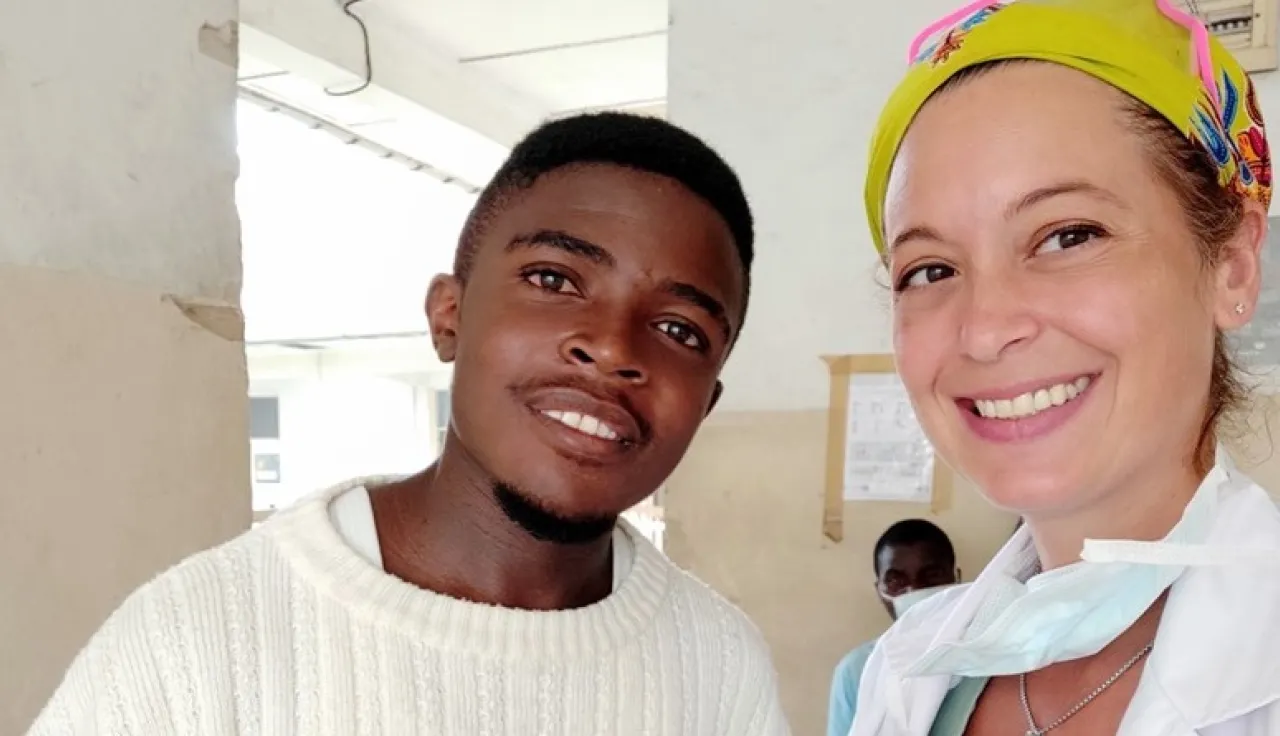
A war surgeon based in South Sudan, Carina Gianserra has been working for three years at the ICRC treating patients wounded by conflict. Being a war surgeon in one of the organisation's most important contexts represents not only a lot of responsibility, but also brings with it many challenges, learning on the ground and total dedication. Argentina, Carina tells us that a quarter of the patients she receives are women and children injured in situations caused by non-international armed conflict and armed violence.
The ICRC supports two surgical units in South Sudan: one in Akobo County Hospital, Jonglei State, and one in Juba Military Hospital, Central Equatoria State. A quarter of the patients treated for gunshot wounds in these units are women and children.
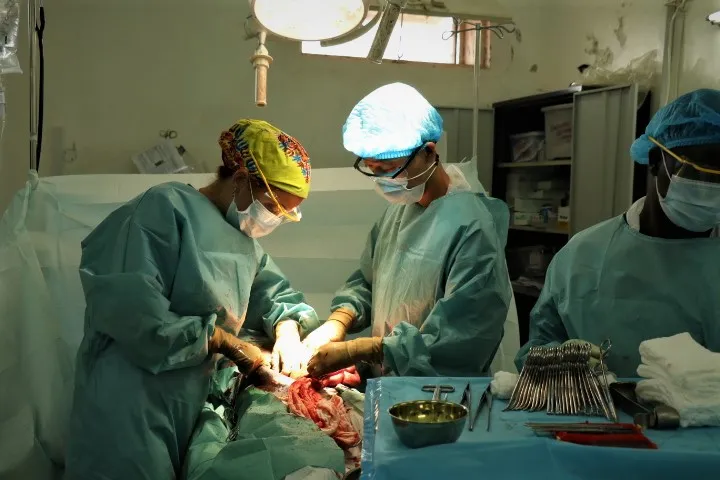
Specially trained in war surgery, the ICRC employs highly-skilled mobile surgical teams in South Sudan. Working under immense pressure, these professionals, like Carina Ginaserra, display enormous amounts of dedication bringing hope to desperate situations.
How long have you been working at the ICRC?
The last three years.
Why did you decide to join a humanitarian organization to perform war surgery?
I wanted to put all my knowledge and skill at the disposal of the people who needed it most. As a general surgeon from Argentina, I had to learn a lot to be able to operate on war-wounded patients and treat their very specific needs. The health issues that you face in humanitarian surgery challenge you and require you put your mind and soul completely into the job.
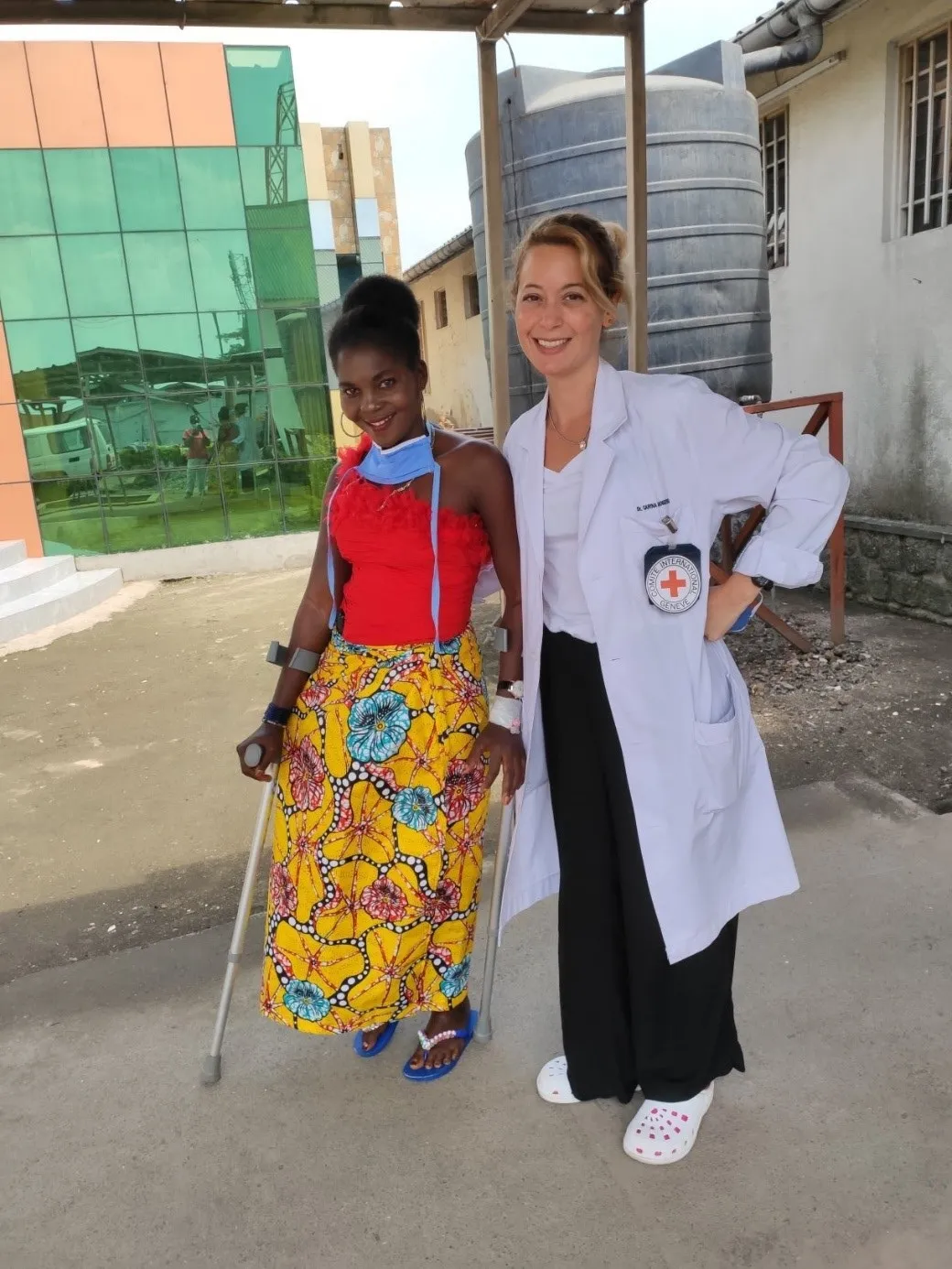
One of Carina's main concerns when attending to a patient is to help these people return to as normal a life as possible.
Is South Sudan your first assignment?
No, my first assignment with the ICRC was in Maiduguri, Nigeria. It was busy, with a lot of emergencies, mass casualties, and where we dealt with all the surgical needs of the displaced communities living around the city.
Then I went to Goma, in the Democratic Republic of the Congo. We treated mostly gunshot wounds and stab wounds there. I am currently in Juba, South Soudan, treating wounded people from all over the country.
A quarter of the patients we receive with gunshot wounds are women and children who have been injured in relation to the non-international armed conflict and the armed violence across the country.
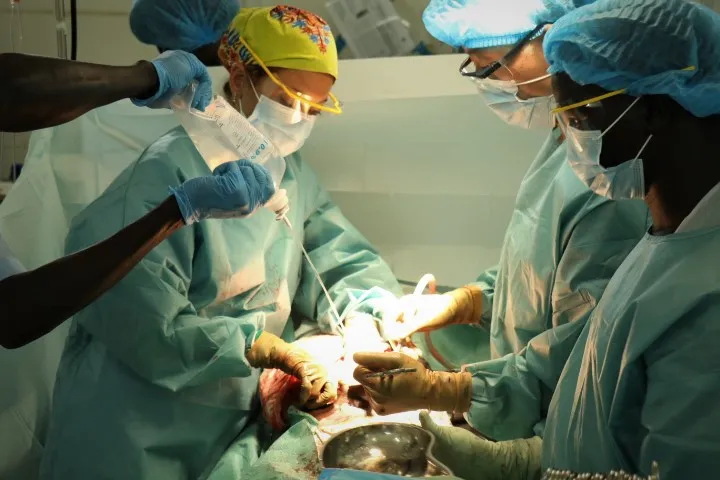
In 2020 alone, 438 patients with firearms wounds were treated by the ICRC. Many patients live in areas without access to health care and need to be evacuated to the nearest hospital by plane or helicopter.
What are the main challenges of working in countries affected by conflict?
The main challenge is achieving the best functional results for wounded patients. In many cases, these wounds have life-changing consequences for the patients, such as having to live the rest of their lives with a physical disability. So, it is in my hands to reduce the impact of their wounds and give them the best chance of leading as normal a life as possible.
In South Sudan, after decades of conflict, access to health care remains very limited. Many patients brought to the two ICRC-supported surgical facilities with gunshot wounds, arrive three or four days after they were injured, increasing the risk of infection and complications. That would never happen if communities had better access to medical care. In 2020, between January and December, we treated 438 patients with gunshot wounds. Between January and March 2021 alone, we treated 124.
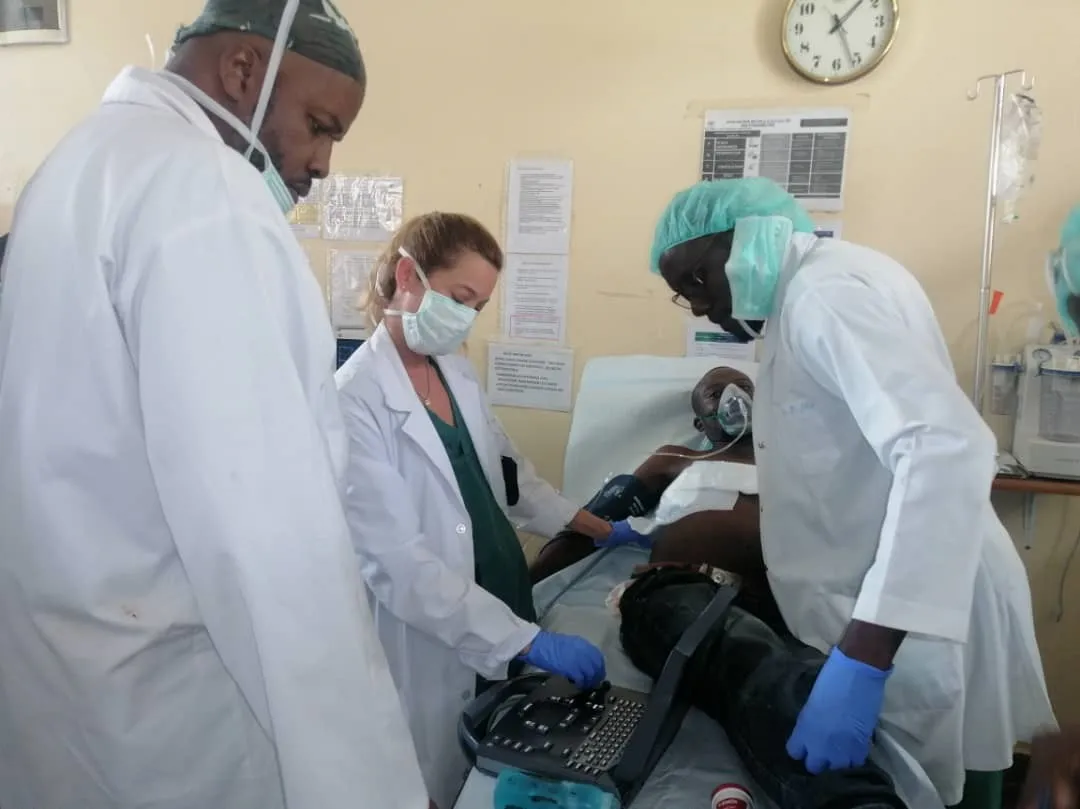
Carina attends to a patient together with her team.
What is the situation like for the people you treat?
After decades of war, communities across South Sudan, the youngest country in the world, are facing many hardships. The humanitarian consequences of cycles of conflict and armed violence limit and prevent people from being able to shape their own future. People are being displaced multiple times, preventing them from growing their own food. Their properties are looted; their houses burnt down.
Many are killed or wounded. They live in remote areas where there is no access to clean water or to any basic service, such as health care or education. It is estimated that about 65% of women and girls across the country have suffered sexual violence.
For the families to be able to rebuild their lives and livelihoods, they need lasting peace, with the security and stability required to raise their children and live their lives, without constantly seeing loved ones or relatives die because of the violence and a lack of access to health care.
When you're on your way to work, what are you thinking about? What motivates you or scares you?
I hope to find my patients are getting better when I get to the hospital. I'm afraid of discovering complications or bad outcomes that I hadn't expected. What scares me the most though is when my all my expertise and willingness to help my patients are not enough.
Do any patients stick in your mind?
Yes, a lot of them. I can get emotional thinking about them, even though that is not really allowed as a surgeon. But one in particular comes to mind.
Jacques is an 18-year-old who arrived at the hospital during my time in Goma with a stab wound to the chest. He arrived at 2 am and we rushed him to theatre. We had to open his chest quickly. Natalie (an anaesthetist) and I had confidence in each other but the situation was challenging, and we were afraid of what could happen. The patient had a cardiac injury on the right ventricle. I had to stich a moving heart for the first time in my medical career.
The surgery was hard but ended well. The next day, however, we found that the knife had also perforated the wall between both ventricles, causing pulmonary oedema – a kind of wound that you cannot fix in the field. After a lot of time and effort, Jacques improved but went home with a cardiac disease that requires medication.
You can see Jacques in the picture below. He is the sweetest guy – shy and respectful, with the most beautiful smile I have ever seen.
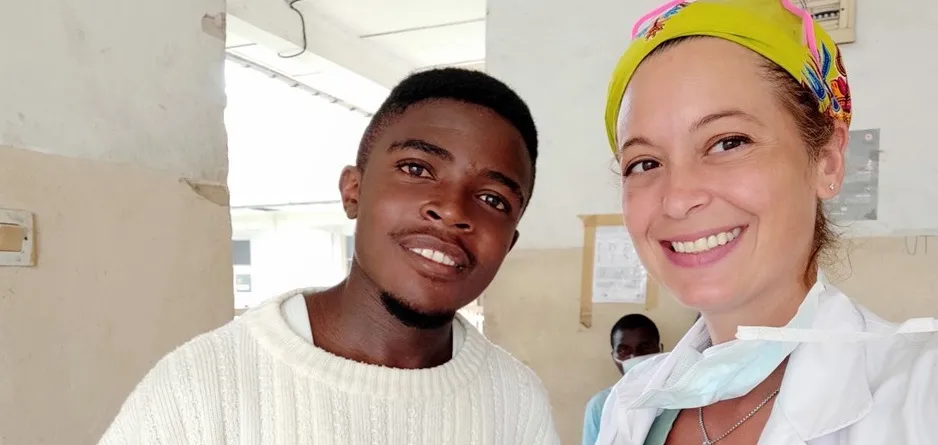
Carina and Jacques pose for a selfie. "He has the most beautiful smile I've ever seen," says Carina. The boy was operated on in a serious condition due to a stab wound to the chest.
What strengths and skills do you need to work in the field?
All of them! You need to be strong and independent but able to work in a team. You must never lose your patience. You have to be able to deal with stressful situations and challenging operations. You must have an elastic heart – to be able to recover quickly when you lose a patient or the results are not as expected.
You have to be able to leave your loved ones far away and stay away from commitments. To deal with loneliness and fill your heart with the gratitude of those you helped.
And to appreciate the gift of life that is being there to heal others.
The ICRC has been working in South Sudan for 40 years.
South Sudan is one of the ICRC's largest global operations and aims to improve access to health care and water; respond to the immediate and long-term needs of communities by distributing food and basic tools and promoting micro-economic initiatives; enhance the dignity and protection of victims of conflict and armed violence; engage with weapon bearers to improve understanding and respect for the law; and develop the capacity of the South Sudan Red Cross to meet humanitarian needs.
The ICRC operates with more than 1,000 staff across the country and an annual budget of CHF 120 million in 2021. It carries out emergency responses for communities affected by conflict and armed violence, and helps families return to their homes to strengthen their resilience, rebuild their lives and livelihoods.



